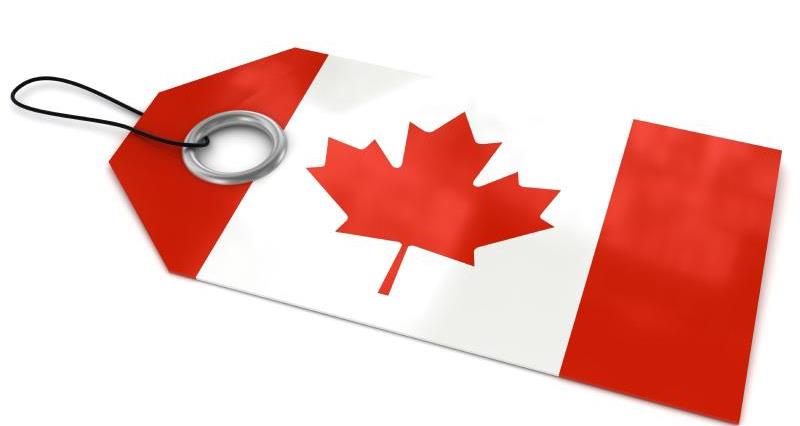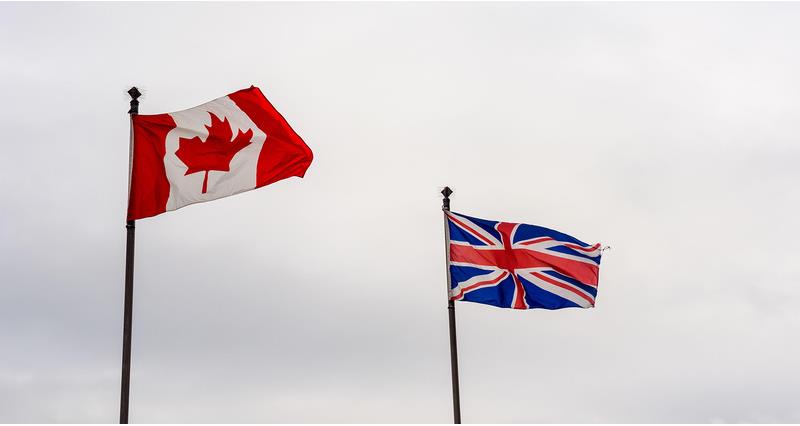UK-Canada trade talks: Food standards remain paramount to UK Government
First published29 January 2024

As trade talks between the UK and Canada remain in the public eye, the NFU provides a summary of the state of play on the negotiations and what they mean for British producers and exporters.
25 January 2024
UK Government announces ‘pause’ in negotiations
A UK government spokesperson said: “We have always said we will only negotiate trade deals that deliver for the British people. And we reserve the right to pause negotiations with any country if progress is not being made.
“We remain open to restarting talks with Canada in the future to build a stronger trading relationship that benefits businesses and consumers on both sides of the Atlantic.”
Responding to the news, NFU President Minette Batters said: “The government’s decision to walk away from trade talks aimed at enhancing the trading relationship between the UK and Canada would have been difficult, but it’s the right decision. On products such as beef and cheese, Canada was demanding too much and offering too little, therefore preventing progress to the benefit of both countries.”
Read more on the NFU’s reaction:
24 March 2022
Government publishes approach to UK-Canada free trade agreement
With the UK and Canada having agreed to enter into negotiations on a new trade agreement within one year from the start of the current UK-Canada TCA (Trade Continuity Agreement), the UK Government has launched its policy paper which outlines its strategic case for pursuing a free trade agreement with Canada.
As well as outlining the objectives for a free trade agreement, the paper also provides an initial assessment of the potential long-term impacts of a trade agreement between the two countries.
Read the full paper: GOV.UK | UK approach to negotiating a free trade agreement with Canada
22 March 2022
Looking at the export opportunities and the areas of concern for British farmers
Benefitting from existing EU-Canada trade agreement
The negotiations will build on a post-Brexit "roll-over" trade agreement, inherited from our time as members of the EU, under which UK producers already benefit from tariff-free trade on 98% of exported goods, including exports of our beef, lamb, pork, fruit, vegetables and some baked goods.
UK food and drink trade with Canada was worth £344m before the pandemic.
The NFU thinks our negotiators can go further and secure enhanced access to the Canadian market for poultry, which was excluded under the previous agreement, for greater volumes of dairy products including high-value cheeses and butter, and for sugar.
Before the pandemic, the UK exported c.1,800t of cheese to Canada in 2019 worth £14.1 million.
The UK exports to Canada are typically high-value premium or speciality cheeses, making it an important market for the UK dairy sector to grow.
Protection for iconic goods
The NFU believes that securing greater access for UK exports of cheese to Canada, as well as protecting their iconic names (i.e. geographical indications (GI)), should be a top priority for UK negotiators.
Currently, the only UK products that benefit from GI protections in Canada are Scotch Whisky, Irish Whiskey, and Irish Cream.
We want negotiators to secure GI recognition for additional UK food and drink GIs including for our beef, lamb and iconic cheeses.
Greater access to UK beef and pork
In return the Canadian’s will undoubtedly want greater access to our beef and pork market. Canada is one of the largest beef exporters in the world, exporting more than half of what it produces and is the world’s third largest pork exporter, exporting 70% of its pork production.
It is essential that any market access is only provided for imports which meet UK production standards, including on food safety, animal welfare and environmental standards. This is in line with the UK Government commitment to uphold domestic standards.
Opportunities, but standards must be safeguarded
NFU President Minette Batters said the start of the talks was positive news.
“While we currently have some agri-food trade with Canada, there are opportunities available for British farmers to export more quality produce,” she said.
But she added: “The government must also recognise that Canada is a significant agricultural exporter that will want to increase its access to the prized UK market.
“The NFU maintains that new free trade agreements should ensure that there are safeguards for sensitive sectors, such as beef and pork in this case, and that farmers are not undermined by increased food imports produced to standards that are illegal here.
“The NFU would welcome a strengthening under all negotiated FTAs to ensure the UK farmer’s high production standards are protected both domestically, and from imports which do not meet those standards. This should include animal welfare and environmental requirements.
“The UK Government must also consider the cumulative impact of FTAs which are currently being negotiated and the ones just concluded and ensure that any concessions are considered in the whole, and in terms of the possible combined impact on the domestic sector.”
13 July 2021
Food standards high on the agenda in NFU response to call for input
The significant opportunity to grow exports of British agri-food goods, from specialist cheeses to poultry products, has been highlighted in the NFU's response to the DIT's call for input on trade with Canada.
However, the organisation has been clear that trade deals must be reciprocal and deliver benefits for UK farmers and growers.
The NFU is also clear in its response that any FTAs (Free Trade Agreements) must protect and uphold domestic production standards, as well as SPS requirements.
Speaking on the call for input, which was held at the same time as a similar call for input on trade with Mexico, NFU International Trade Adviser Gail Soutar said:
“Both Canada and Mexico represent important markets for UK agri-food goods, with yearly exports to each country totalling on average £320m and £170m, respectively. Both markets offer opportunities for UK farmers to export their high-quality produce, and Canada is already an important market for our dairy producers.
“However, Canada and Mexico are also among the 10 largest agricultural exporters in the world, sitting alongside the likes of Brazil, the USA and Australia.
“The government must therefore be particularly mindful of the cumulative impact negotiating free trade agreements with these global agricultural powerhouses will have on our farmers here in the UK. This is particularly relevant given reports that Australian exporters will be offered tariff-free, quota-free access to the UK market, putting severe pressure on domestic producers.”
NFU members can read the full submission to the call for input at: Trade with Canada – NFU response to call for input
12 July 2021
Call for input closed
The call for input is now closed. The DIT received 149 responses on trade with Canada.
18 May 2021
Call for input launched on trade with Canada
The DIT (Department for International Trade) launched an eight-week call for input on trade with Canada, which aimed to gather views on how the Government should look to improve or amend the current UK-Canada TCA (Trade Continuity Agreement) which entered into force on 1 April 2021.
More information on the current TCA can be found at: GOV.UK | Trade with Canada.
The call for input was held jointly with input on how UK-Mexico trade could be improved on.
The NFU sought views from members on concerns about specific imports to Canada; information about specific farming practices; opportunities to send agri-food products to Canada; or anything else surrounding trade to Canada.
1 April 2021
UK-Canada TCA comes into force
Following the cessation of the CETA (EU-Canada) deal on the UK from 1 January 2021, the UK-Canada TCA (Trade Continuity Agreement) has come into place.
This agreement largely rolls over provisions outlined in the CETA, albeit with some notable exceptions, such as those surrounding import quotas of dairy products from the UK.
There are two sunset clauses in the agreement which affect UK exporters. The first relates to the UK’s access to Canada’s cheese quota, expires on 31 December 2023, and the second which relates to the cumulation of EU qualifying content under the Rules of Origin, is expires on 1 April 2024.
Ask us a question about this page
Once you have submitted your query someone from NFU CallFirst will contact you. If needed, your query will then be passed to the appropriate NFU policy team.
